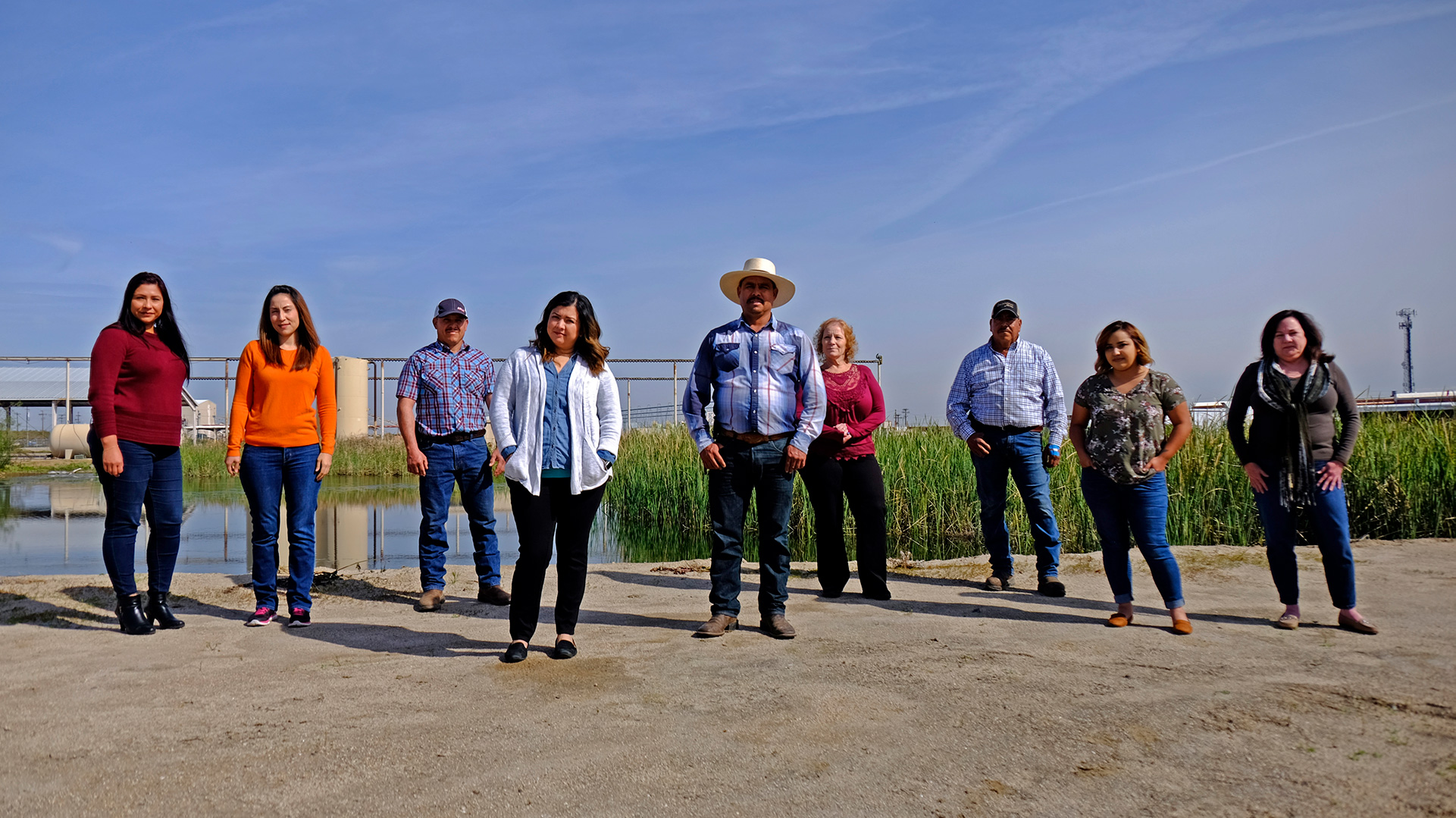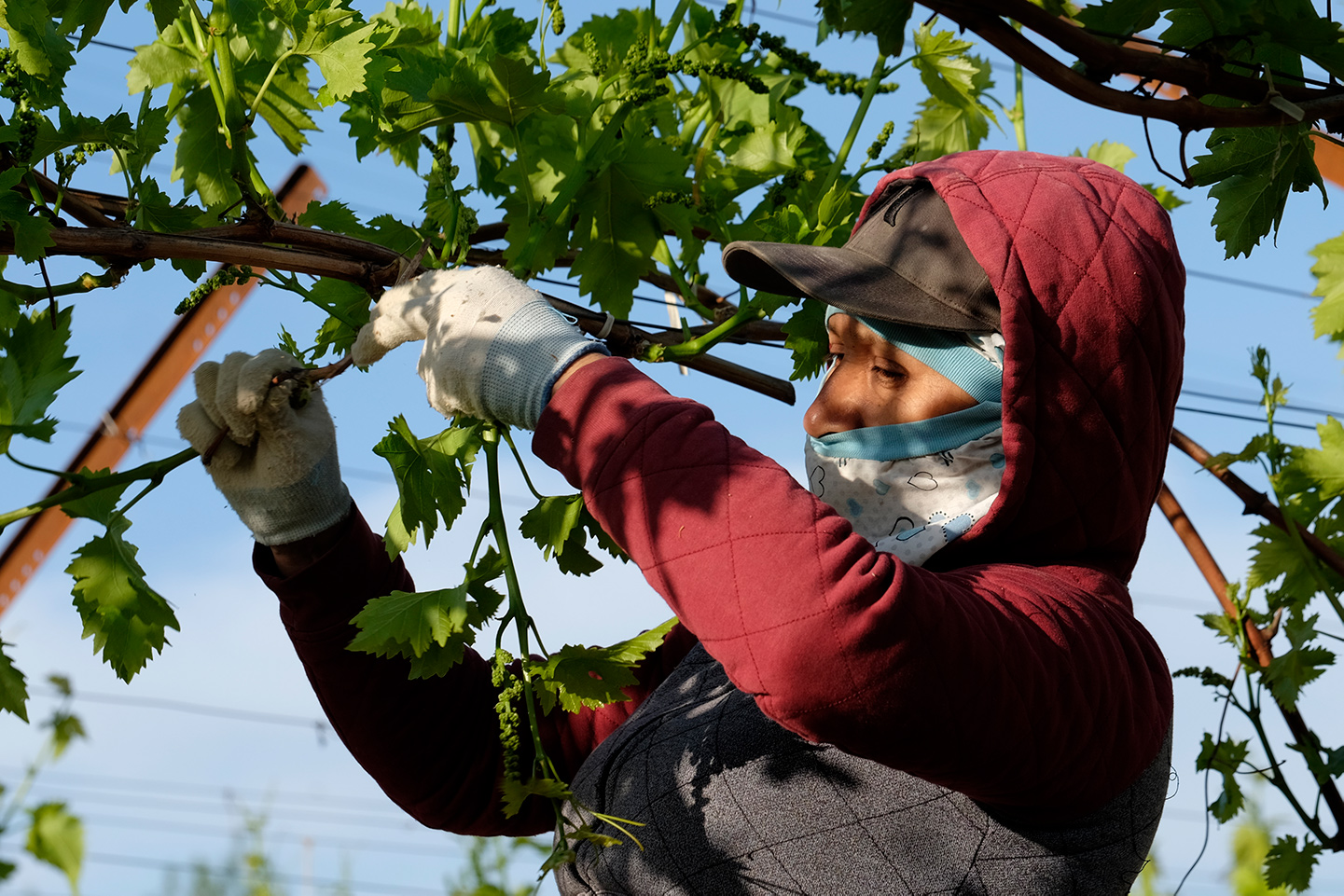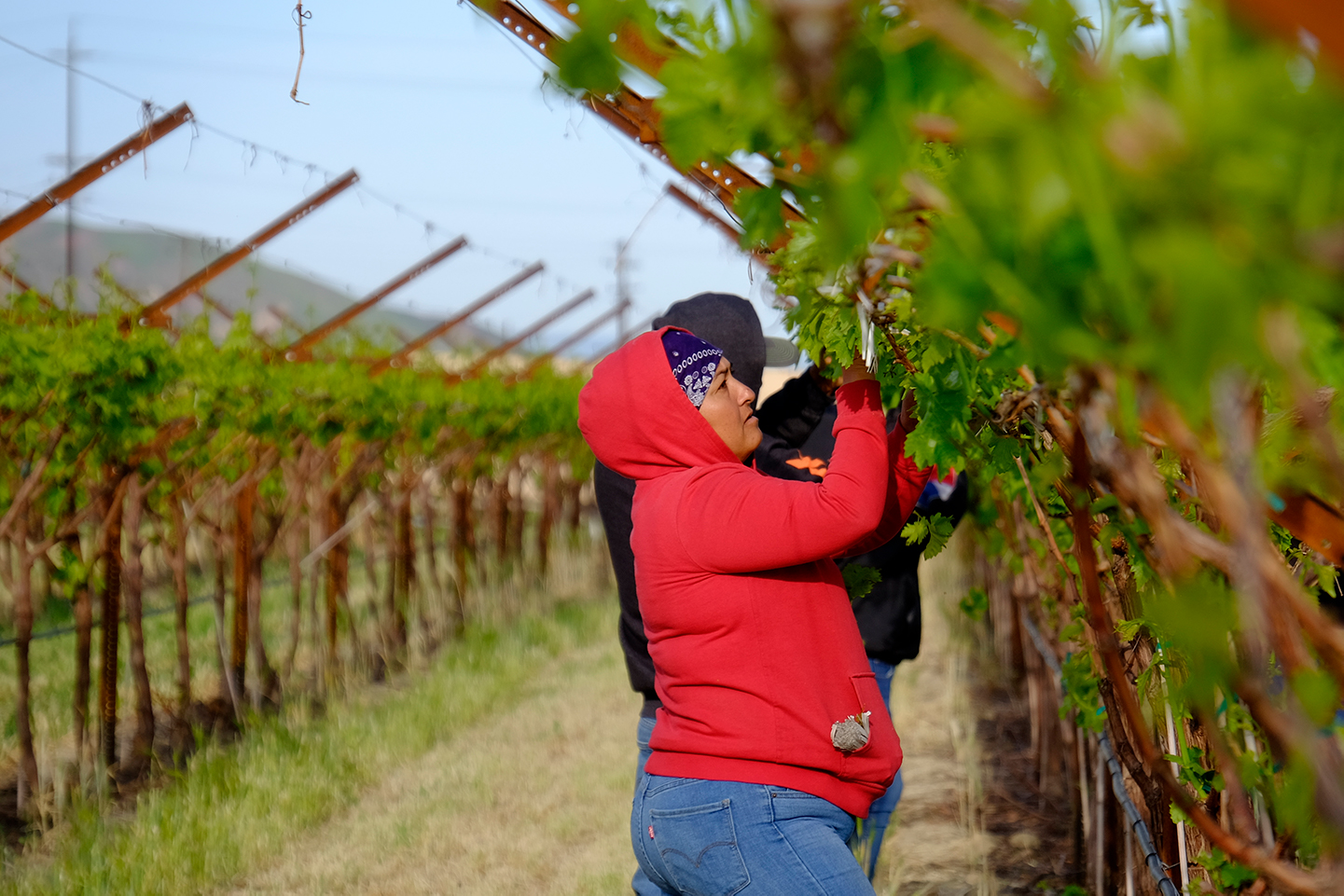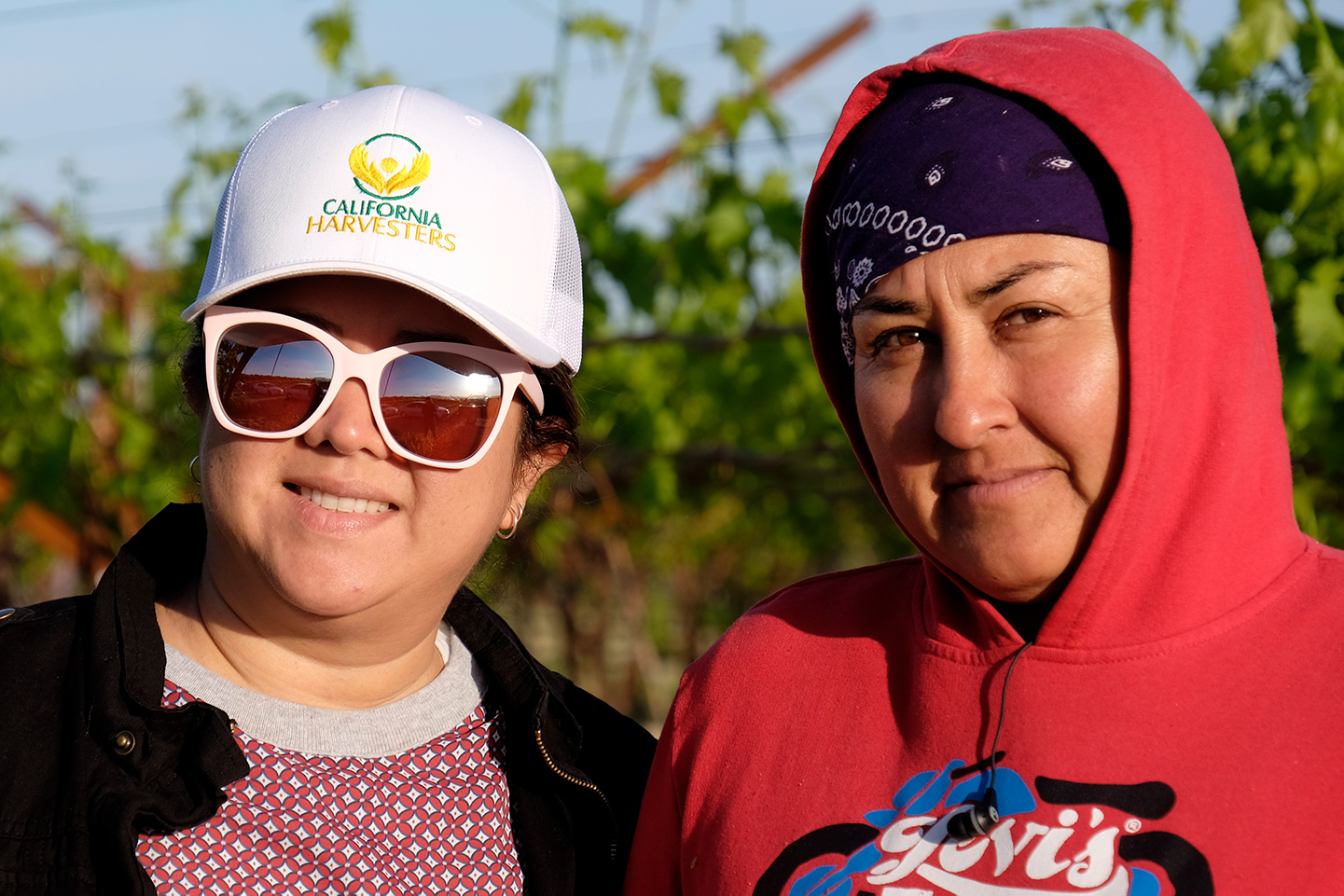Sexual harassment can occur in any workplace, but it is especially problematic in the agriculture industry, where low-wage workers are often isolated and powerless.
It happens in many different ways, in many different environments. For one woman, a foreman on the farm where she worked drove her far into the ranch, away from other workers, where he kissed and groped her. Another woman, who worked on an egg farm and was the sole provider for her family, was repeatedly sexually abused by her supervisor.
“I think there’s something about farm work — and other low-wage jobs where immigrants tend to flock — where there’s a dynamic of isolation that also puts them at particular risk,” said Bernice Yeung, a Reveal reporter who has written about violence against women, immigration, environmental health and workplace conflict. She wrote In a Day’s Work: The Fight to End Sexual Violence Against America’s Most Vulnerable Workers and helped produce Rape in the Fields, a documentary about the exploitation and abuse of immigrant women farm workers.
“Even in a factory or an office building, you might be the only one in a farm field,” she said.
The Institute for Women’s Policy Research reported last year on key factors that increase the risk of sexual harassment and assault in the workplace, four of which apply directly to marginalized communities working on farms: isolated contexts, lacking legal immigration status or only possessing a temporary visa, working in a male-dominated job and significant power differentials.
“Farm and food facility worker women experience a lot of the same dynamics that workers in low-wage industries face,” said Yeung. “They’re similar types of hazards when it comes to workplace violence, and workplace sexual violence, in particular.”
The risks of harassment are higher for immigrants, who may lack the language skills to report a problem or understand their protections and rights. They may be financially strapped and reluctant to lose their jobs. Their immigration status may cause them to fear deportation.

Lay a foundation
Yeung said that addressing sexual harassment and misogyny in the workplace is rooted in culture. Research shows that when companies set standards and protocols regarding a specific issue or behavior, less of it exists.
“There’s something important about creating an environment where workers feel like they can speak up for themselves or, as a bystander, someone can help set the tone of a workplace culture,” said Yeung. “It’s how you act and how you treat others and how you choose to intervene in something that’s troubling. And it has ripple effects.”
When employers and managers set an example for how to treat workers with dignity and respect, farms and food facilities are able to make accountability part of their culture. Employers trying to create such an inclusive culture can start by taking genuine interest in their employee’s experiences, both as individuals and members of the organization. This includes drawing employees into the business’s grand plan — sharing the vision and mission of the business, why it is important and how each employee is vital to its design. Having an accessible and understandable human resources department also is key, as is orientation training that focuses on the tenets of a respectful environment.

Power to the people
California Harvesters, a farm labor contractor in its first year of operations, is doing just that. The company is organized differently than most farm labor contractors, which supply workers to agricultural growers. It is a labor trust that functions like a worker cooperative. There is no single owner. Instead, employees who meet milestones, such as completing a certain number of hours or days of work, become members of the trust. Laborers then help decide what will be done with California Harvesters’ profits; for example, they may be redirected to employees as new or improved benefits or as higher wages, or they may be reinvested in the company.
California Harvesters’ vision is for workers to become the managing group so they can grow and invest for the company, decide how to use profits and gains, and hold seats on the board to provide real representation, according to Jenny Ramirez, the company’s interim CEO and director of human resources. It is also part of the business strategy to retain high-performing employees in an industry known for turnover.
Ramirez said that one of the company’s biggest strengths is its robust sexual harassment policy. It meets guidelines set by the State of California, but it is more than just standards and protocol. It is a part of the company that is promoted and reinforced regularly to employees.
“It’s part of our culture,” said Ramirez. “It’s part of our initial onboarding training. We have confidential lines through which employees are able to contact us and report on any situation. They have access to an HR department, which again, they know is available to them.”

That culture is instilled, in part, through California Harvesters’ supervision structure. The company stations its own supervisors in the field to observe employees as they work. They support the field workers and crew bosses while communicating with the growers. Ramirez said this empowers employees because they know the environment and workplace will be reflective of California Harvesters’ training curriculum. It also helps head off quality control issues and puts a representative from California Harvesters at the front of any problems that surface.
“One of our workers complained about a grower’s supervisor showing up and yelling and berating them over a quality control issue,” she said. “The individual employees called at the end of the shift to let us know that a supervisor came in and was talking to them harshly over their work and singled them out from the rest of the crew. We received about three different calls. After the call, we sent an email to the grower management team and notified them of the problem, and we told them we would be conducting an investigation the following day. The next day, we interviewed the entire crew over the incident, and we documented our findings. We then sent summary of our investigation to the grower and requested their supervisor be counseled and put through harassment training.”
Ramirez said the client’s supervisor was counseled, and California Harvesters requested that, in the future, issues related to their employees’ work or performance should be directed to one of California Harvesters’ on-site supervisors. The client agreed, and significant changes were noted in the client’s supervisor’s behavior.
“That was really gratifying to hear, that our employees felt like ‘We’re not in this alone, we have someone that we can go to, that will represent us,'” said Ramirez. “In my years in ag, I’ve never heard a field worker feel that empowered to say something like that.”
While it is true that many farms and food facility employees do not have access to a group like California Harvesters, Ramirez said employers can make changes to build a culture just like theirs. Her most important advice is to lose the fear of letting your employees communicate with you.
“Don’t be afraid of giving people to opportunity to speak up,” she said. “I think that sometimes, there’s this fear that if you let them share what’s happening, that somehow you’re going to open the door for problems. In reality, what happens is people start eliminating opportunities for harassment to take root. Just like bad behavior spreads, good behavior spreads, too.”
It seems to be working. California Harvesters started with 250 workers in April of 2018. By October, it had 900. Ramirez expects a similar buildup for 2019.

Take the initiative
Elyse Shaw is a study director for the Washington D.C.-based Institute for Women’s Policy Research, which, through research, policy analysis and public education, focuses on the advancement of women’s status. Shaw said that sexual harassment is an issue that permeates women’s lives. She realized long ago that there was a need to address this in the workplace, but as she began researching, she was shocked to find how little information existed.
“Many of the movements trying to address this issue are grassroots movements, so we’re seeing a lot of bottom-up approaches, but we’re not really seeing as many top-down approaches,” she said. “I think we need to really address this issue in a systematic way.”
She and her fellow researchers have noticed an uptick in conversations about workplace sexual harassment, including how to address it. And, she noted that employers are easing up on harmful practices, like nondisclosure agreements and forced arbitration, which often facilitate hostile environments.
Plus, employers are getting the picture that a harassment-free work environment has bottom-line benefits by saving money through employee retention. Reputation is important for industry, too. If a certain type of job becomes known as dangerous or risky, employers in that industry may face additional struggles to find labor.
“Reputation also resonates with consumers,” said Shaw. “More and more, the consumer dollar is aligning with companies that adopt and refine best practices for harassment and supportive cultures in the workplace.”



















